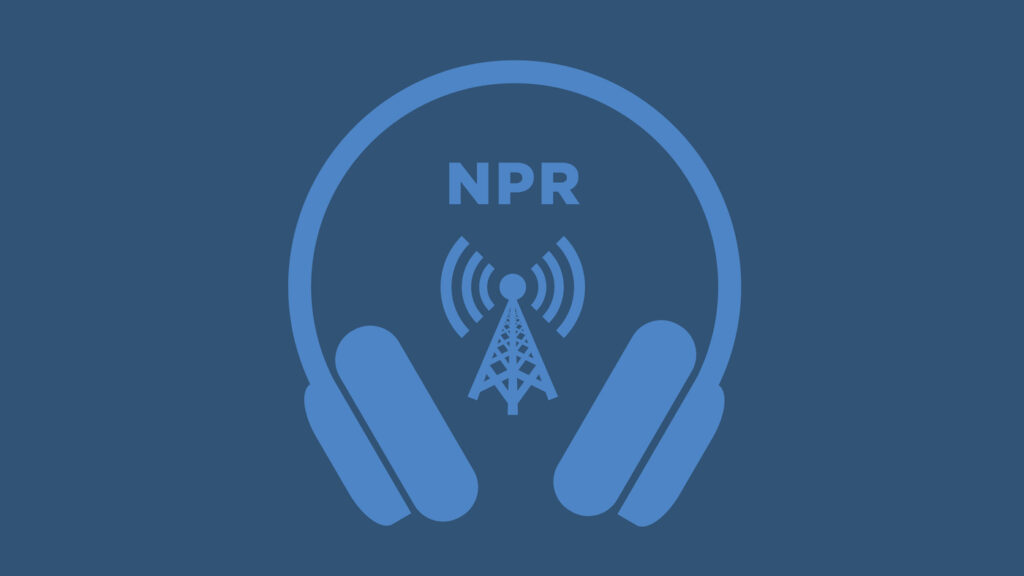In Thailand, lawmakers voted overwhelmingly to legalize same-sex marriage. If the measure takes effect, the Thai government will become the third in Asia to allow same-sex marriage.
MARY LOUISE KELLY, HOST:
In Thailand, lawmakers voted overwhelmingly to legalize same-sex marriage. Of the 152 Thai senators present on Tuesday, 130 voted in favor of the bill, while some abstained. If the measure comes into effect as expected, the Thai government will become the third in Asia to allow same-sex marriage. Well, Mookdapa Yangyuenpradorn helped craft this legislation. She works with the human rights organization Strengthening Rights. Thank you very much for joining us.
MOOKDAPA YANGYUENPRADORN: Thank you so much for having me here today.
KELLY: I know that marriage equality advocates in Thailand, advocates like yourself, have been brewing for years. What is the climate for the LGBTQ community in Thailand today?
YANGYUENPRADORN: I would say it’s a very historic moment to be able to see something so huge in person. I think there are LGBTQIA couples in Parliament. And then when the vote happened, when we saw it pass, you know, the rainbow flag was waving. This is a very exciting time for many of us as many have been campaigning for this bill for a long time. Some have been there for more than a decade. Some even said they couldn’t imagine seeing this become a reality in their lifetime. So people got goosebumps. I got goosebumps myself when I saw the bill pass. You know, we’re also grateful to the activists and the people who fought for this bill before us and the people who are still standing with us right now.
Kelly: Help me understand what the overall public opinion is in Thailand. I’ve been watching the polls. They show that the majority of Thais support the law, including the prime minister. Having been to Thailand, I know that Thailand promotes itself as a friendly place for LGBTQ travelers. But it will take a while. Have some changes been made to allow this to be done at this time?
Yang Yuan Pradorn: Yes. So I think we’re seeing greater acceptance and tolerance of LGBTQIA people in society. Ten years ago, for about eight or nine years, Thailand has been in a state of military coup, and the government has suppressed rights and freedoms in many aspects. So I think when people took to the streets in 2020 in nationwide protests demanding change, it triggered a huge shift in the political landscape of Thailand, you know, people were demanding change and LGBTQIA rights were affected. One of the agendas proposed in the mainstream political landscape.
Kelly: Where will the fight of LGBTQ advocates in Thailand go next?
YANGYUENPRADORN: I would say this is really a start. As a result, there are now a number of bills being tabled that will be pushed through government, including a Gender Recognition Bill, an Anti-Discrimination Bill and a Sex Work Decriminalization Bill. So now things seem to have changed, and I think people are looking forward to seeing more and more bills, like laws, policies and practices that guarantee LGBTQIA rights, yes, protection and recognition.
KELLY: I mentioned that this would make Thailand one of only three countries in Asia, and I believe the only country in Southeast Asia, to legalize same-sex marriage. Do you hope that this initiative by Thailand will influence other countries to pass similar laws?
YANGYUENPRADORN: Oh, sure. I very much hope that this change will inspire other countries to see that what we are doing in Thailand today is sending a message to our neighbors and to the international stage that this is very important.
Kelly: Well, thank you so much for your time today.
YANGYUENPRADORN: Thank you so much for having me.
Kelly: That’s Mookdapa Yangyuenpradorn. She is a human rights associate at Fortify Rights and we contacted her in Bangkok.
(SOUNDBITE OF AKON’S SONG “Crack Rock”)
Copyright © 2024 NPR. all rights reserved. Please visit our Terms of Use and Permissions page at www.npr.org for more information.
NPR transcripts are created by NPR contractors under emergency deadlines. This article may not be in final form and may be updated or revised in the future. Accuracy and availability may vary. The authoritative record of NPR programs is the audio transcript.

